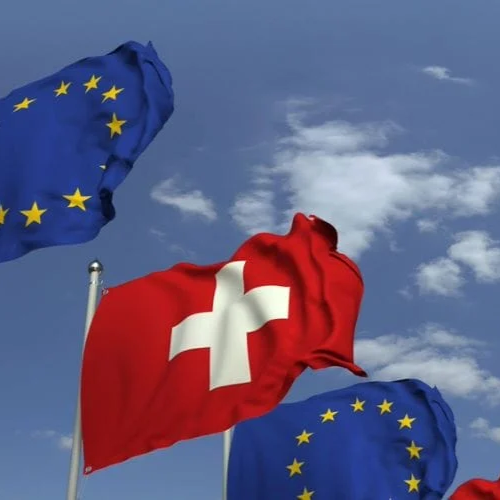Switzerland, a country known for staying out of global conflicts, has made a strong move. On April 22, its Economic Ministry announced that it will follow the European Union (EU) in placing sanctions on eight Russian state media outlets. These actions will take effect starting April 23, 2025.
This decision is part of a bigger set of measures by the EU, called the 16th sanctions package. These sanctions were introduced on the third anniversary of Russia’s full-scale invasion of Ukraine. The new rules are meant to put pressure on Russia, especially by cutting off media outlets that the EU believes are spreading harmful propaganda.
The eight Russian media outlets that are being targeted include names like Eurasia Daily, Lenta, NewsFront, SouthFront, and others. According to officials, these outlets have been used to spread messages that support the Kremlin and mislead people about the war in Ukraine.
You May Also Like: Switzerland Steps in As Tensions Mount for Militarization of Space
Switzerland has added these eight outlets to its official list of sanctioned organizations. This list is called “Annex 25” in their official rules. Along with this change, they also updated another list — “Annex 8” — which already includes 158 individuals and groups connected to Russia. These updates show that Switzerland is taking a serious step in standing with the EU on this matter.
More Than Just Media: Sanctions Cover Banks and Oil Too
This latest round of sanctions by the EU, which Switzerland is now supporting, doesn’t stop at media. It includes a wide range of new restrictions. Russian banks are now facing tighter limits, and the EU has also made it harder for Russia to sell aluminum.
A special focus has also been placed on what experts are calling Russia’s “shadow fleet.” These are oil tankers that try to move Russian oil in secret, without being seen by international authorities. The goal of the new sanctions is to stop these secret oil sales, which help fund the Russian government during the war.
While Switzerland is still not offering weapons or military help to Ukraine, these economic moves are important. They show that the country is willing to go against its tradition of staying neutral when it comes to international conflicts — at least in terms of financial and media restrictions.
Switzerland’s Support for Ukraine Grows Stronger
This is not the first time Switzerland has supported EU sanctions. In earlier cases, it also took action against other Russian media outlets. However, this step is one of the strongest yet, and it shows a clear shift in Switzerland’s role in global politics.
Although Switzerland continues to follow its law of military neutrality — meaning it will not send weapons or troops into war — it has still provided Ukraine with a great deal of help. This includes billions of dollars in economic and humanitarian aid. From food and shelter to medical supplies, Switzerland has played a big part in supporting people affected by the war.
Russia’s Powerful MiG-41 Could Outclass US F-35 Despite Global Sanctions
Interestingly, Switzerland has also said it might join a peacekeeping mission in Ukraine one day, but only if there is a ceasefire. For now, its actions are focused on using non-military tools to help bring peace and truth.
By aligning with the EU on these tough sanctions, Switzerland is sending a clear message: spreading false information during a time of war is not acceptable. And even a neutral country can take strong steps when it comes to defending basic human values.


